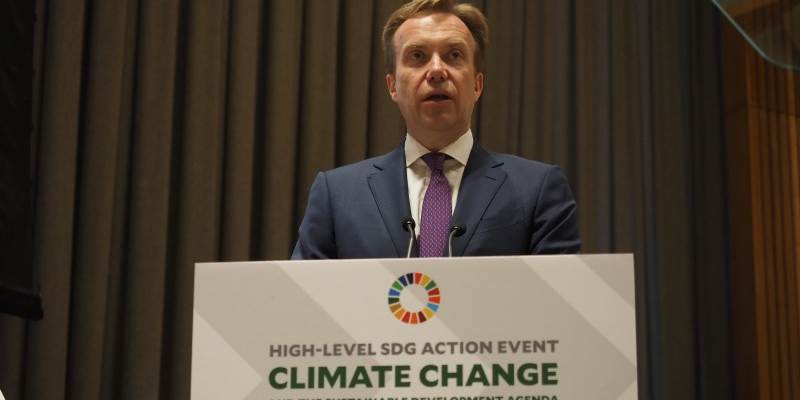The Paris Agreement is key to a global solution on climate change. It represents a true turning point in our fight against global warming.
The 2030 Agenda and the SDGs are a transformative global roadmap that aims at eradicating extreme poverty, while protecting planetary boundaries and promoting peace, prosperity and justice.
The success of what we achieved in 2015, depends on continued political leadership and acting on commitments.
Confidence in implementation is crucial for the success of the Paris Agreement and the SDGs.
Confidence is gained by deeds, not promises.
(Stocktaking on climate – Ambition and action)
Norway is already working hard to reduce greenhouse gas emissions. By 2030, we will reduce emissions by at least 40 per cent compared to 1990 levels. We will do so jointly with the EU.
We will also continue our international efforts to support climate action. We will strengthen our efforts in areas such as forest management, climate finance, clean energy, short-lived climate pollutants and phase-out of fossil fuels subsidies.
Moreover, in Paris, we pledged to continue our initiative to reduce emissions from tropical forests up to 2030. Mobilization of the private sector will be critical to achieve sufficient volume and the necessary investments and technology development. (Active partnerships with the private sector and development and humanitarian actors must be constructed.)
Because of its scale, speed and unpredictability, climate change is labelled the ultimate "threat multiplier." There is no doubt: It is one of the major global security threats of the 21st century.
But political priorities are often driven by more short-term agendas. We need firm commitment to stay on track with the long-term challenges and steadily increase ambition levels.
I believe that the Paris agreement sends a strong message to public and private actors that low-emission, climate-resilient investment will pay off. (This is crucial, since there is a need to raise the levels of ambition from Paris as we move on.)
I also believe in partnerships based on mutual interest as a model for stronger action and for mobilizing investments.
Partnerships, such as those developed under Norway’s Climate and Forest Initiative, triggers larger investments from public and private sources.
It sends important messages to developing countries that their climate efforts are recognized and lead to increased international support.
The success stories of international cooperation should serve as a source of inspiration for us all as we proceed down this important road.
